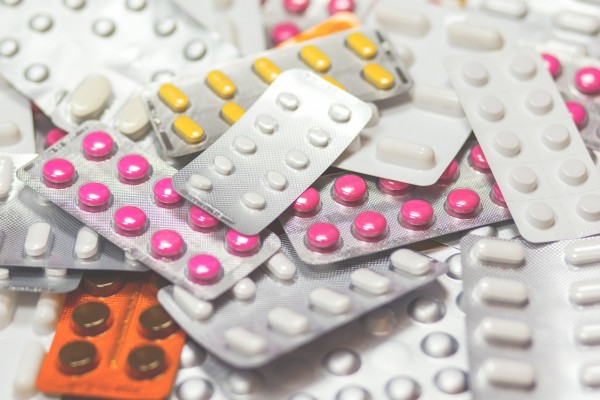BU Conducts First Experimental Evaluation Of Pharmaceutical Industry-Led Access Program

The study of the Novartis Access program in Kenya demonstrates it is possible to evaluate major pharmaceutical companies' access programs using robust, 'gold standard' methods.
A new study led by Boston University School of Public Health (BUSPH) researchers is the first to use a randomized trial design to generate rigorous evidence on the impact of a pharmaceutical industry-led medicines access program.
The study, published in The Lancet Global Health, evaluated Novartis Access, a Novartis Social Business program in Kenya, which offers a portfolio of non-communicable disease (NCD) medicines at a wholesale price of US$1 per treatment per month.
"It is our hope that the evidence generated by this study will inform Novartis' efforts to improve their program going forward," says study lead author Peter Rockers, assistant professor of global health at BUSPH. "The study also contributes to the public evidence base on strategies for improving access to medicines globally. Rigorous measurement and transparent reporting should be standard for all pharmaceutical industry efforts to improve access."
For the current study, supported by Novartis, the researchers evaluated the effect of the first 15 months of Novartis Access in Kenya, the first country to see the program rolled out. In addition to being the first experimental evaluation of a pharmaceutical industry-led access program, the project sets a new standard for transparency in public reporting on academic engagement with industry; all project-related documents, including funding agreements, methods protocols, and survey instruments are available for download on the project website.
Four Kenyan counties received the Novartis Access intervention, with public and non-profit health facilities purchasing Novartis Access medicines from the Mission for Essential Drugs and Supplies (MEDS). Households in these counties were also eligible if they had at least one adult patient who had been diagnosed and prescribed medicines for one of the NCDs targeted by the program: hypertension, heart failure, dyslipidemia, type 2 diabetes, asthma, or breast cancer.
The researchers compared NCD medicines access over the first 15 months of the intervention in these counties with access in four other counties with similar demographics and health variables. They combined household and facility data collection with repeated, in-depth interviews of patients and medical providers. Leveraging the high levels of cell phone ownership in Kenya, the researchers were able to collect information monthly from households and facilities on NCD medicine availability and prices.
They found that, in health facilities, the program significantly increased the availability of two medicines, the hypertension drug amlodipine, and the type-2 diabetes drug metformin. The program did not affect the prices of the drugs in the portfolio and did not increase the availability of the medicines in households. "Access programs operate within complex health systems and reducing the wholesale price of medicines might not always or immediately translate to improved patient access," explains Veronika Wirtz, co-author of the study.
The researchers also found that, while patients were usually diagnosed with an NCD in the public or faith-based mission sector, most patients obtained their NCD medicines from the private sector.
In an accompanying Lancet Global Health comment, Imran Manji of Moi Teaching and Referral Hospital in Eldoret, Kenya, and Sonak Pastakia of Purdue University wrote, "Peter Rockers and colleagues present a necessary and timely evaluation of an industry-led initiative to improve medicine access, which [...] provides many lessons to others in the pharmaceutical industry who are embarking on similar access programs."
"This first-of-its-kind study demonstrates that it is possible to evaluate access programs undertaken by major pharmaceutical companies using robust, 'gold standard' methods," says study co-author Richard Laing, professor of global health.
Jul 16, 2019 11:03 PM EDT





